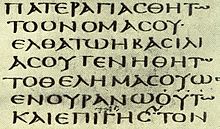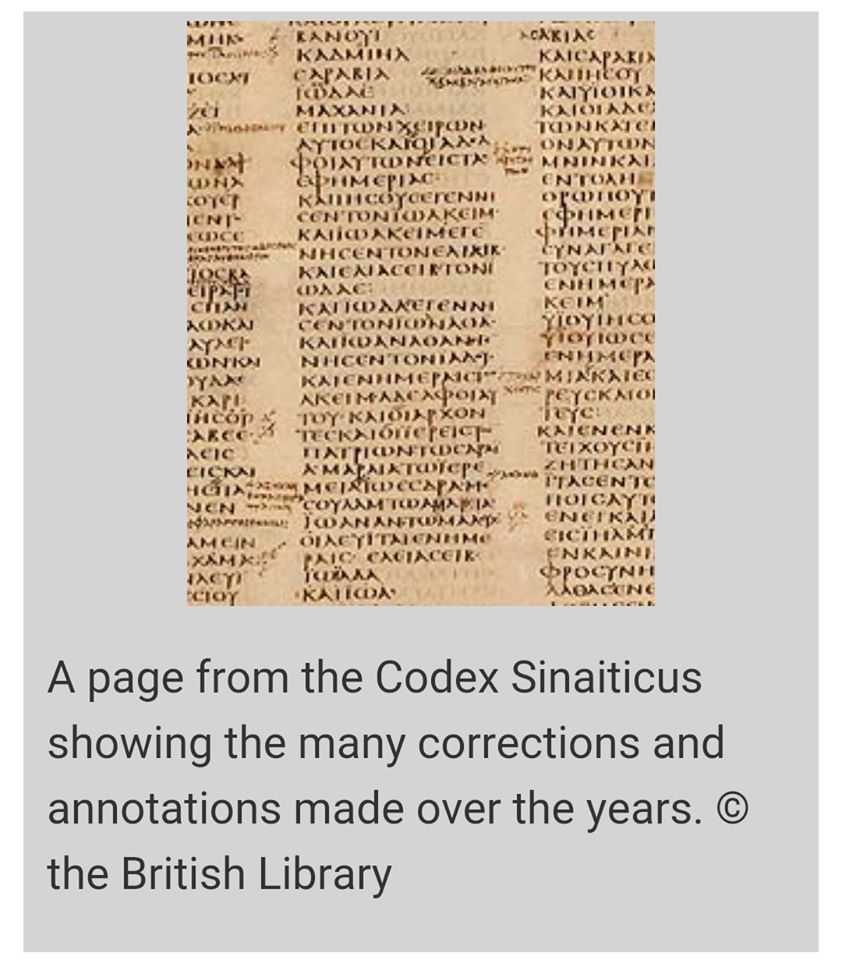In
1819,
John Henry Todd published
A Vindication of Our Authorised Translation and Translators of the Bible. In this he quoted T. Rennell with this warning:
“From either of these schemes, the bold project of a new translation, or the more specious one of a revisal of the present version of the Holy Scriptures, there can be so little gained, and may be so much hazarded, that THE PROBABLE GOOD BEARS NO MANNER OF PROPORTION TO THE THREATENED DANGER. ... With regard to revision, it is of little importance that a few particles be adjusted, a few phrases polished, if the whole fabric of that faith which was once delivered to the saints is thereby shaken to its foundation.”
John Jebb, Bishop of Limerick, gave this warning in 1829:
“But I humbly conceive that, in the present days of unsettlement and appetency after change, the only safety lies in keeping things as they are. We have not hitherto indeed had any great encouragement from the revisionary labours even of our first scholars and divines. Looking around me in the present day, I see much to fear, and little to hope; for one trifling error corrected I doubt we should have ten worse introduced; while, in point of style, from everything that has appeared of late years, I am obliged to think we should be infinitely losers” (Life of John Jebb, II, p. 454).
Alexander McCaul. In 1857 McCaul published
Reasons for Holding Fast [to the Authorized Version]. He warned:
“The changing of these words would establish a principle, that words not intelligible to the general reader must be changed for others more easily understood. And then a great many and important words must be removed. The possibility of having our theological language and therefore our theology changed (as might be the case), makes us rather satisfied to hold fast what we have than to run the risk of emendations of so sweeping a character. ... The last reason which may be urged for holding fast the authorized version is, that the advocates for revision propose not only to change our existing translation, but also the adoption of some improved Text of the originals. … All the other perils are as nothing compared with the alteration of the original texts. Everybody knows that, in the New Testament especially, there are some texts affecting the very foundations of our faith, others affecting the controversies between High Church and Low Church, which are subjects of debate. ... But let these passages be changed, and the weight of church authority is at once thrown into the scale; and a doubtful, mischievous reading may be put forth as the oracle of God.”
Lord Panmure, speaking before the Edinburgh Bible Society in
January 1857, warned:
“We have heard in this country, and we have seen it absolutely put into practice in the United States of America, of a scheme for what is called a new version of the Bible. Now, feeling very strongly on this subject, I take this opportunity of publicly stating my opinion: that any such scheme is fraught with the utmost danger to the Protestant liberties of this country. Nay, it is fraught with danger, I believe, to the Protestant religion itself. ... I think it would be the most dangerous and disastrous thing which could occur to this country, if we were to permit those words to be tampered with which have been household words in many a pious family for upwards of three hundred years, and I hope will be household words to all the families of the world before three hundred years more are passed” (Lord Panmure, The Witness, January 10, 1857, as cited by Edwin Bissell, The Historic Origin of the Bible, p. 351).
D.H. Conrad, in April 1856, delivered this warning to a Bible Convention in Richmond, Virginia:
“[Regarding the proposed revision of the Authorized Bible] ... (2) You open a crevasse through which you know not how soon the floods of innovation may sweep away the sacred landmarks. (3) You risk too much for a small (supposed) accuracy, for you let in the cavils of those ‘who watch for your halting.’ You will have, as allies in the undertaking, all the heresies, past, present, and to come, to say nothing of those who now hate the Bible, because it stands a solemn protest against their ideal theories” (D.H. Conrad, Esq., at a Bible Convention, Bible Society Record, December 1856, cited by Edward Cone Bissell, Historic Origin of the Bible, 1873, pp. 348, 349).
Anthony Ashley Cooper (the seventh Earl of Shaftesbury), gave this warning before the British & Foreign Bible Society in
May 1856:
“DESTROY THAT COMMON CONSENT TO RECEIVE AN ‘AUTHORIZED VERSION,’ AND MY BELIEF IS THAT YOU HAVE INFLICTED A DEADLY WOUND ON THE CAUSE OF THE PROPAGATION OF THE TRUTH AMONG ALL THE NATIONS THAT SPEAK OUR LANGUAGE. ... At present we have the ‘Authorized Version,’ and we consent to receive it. We are, therefore, all on an equality; when we enter into a controversy we are on an equality; THE LAITY CAN EXERCISE THE BEREAN PRIVILEGE OF EXAMINING THE SCRIPTURES ‘TO SEE WHETHER THESE THINGS BE SO,’ AND CANNOT BE TOLD BY THOSE FROM WHOM THEY DIFFER, ‘IT MAY AGREE WITH YOUR VERSION, BUT I HAVE ANOTHER AND A BETTER ONE, AND THEREFORE, I CAN HAVE NO CONTROVERSY WITH YOU.’ What is proposed would, if carried out, tend to destroy the exercise of private judgment—that grand, sacred, solemn principle which is the right of every man, and which I imagine to be the great security of churches and nations, and the life and soul of individuals. WHEN YOU ARE CONFUSED OR PERPLEXED BY A VARIETY OF VERSIONS YOU WOULD BE OBLIGED TO GO TO SOME LEARNED PUNDIT IN WHOM YOU REPOSED CONFIDENCE, AND ASK HIM WHICH VERSION HE RECOMMENDED; AND WHEN YOU HAD TAKEN HIS VERSION, YOU MUST BE BOUND BY HIS OPINION. I HOLD THIS TO BE THE GREATEST DANGER THAT NOW THREATENS US. IT IS A DANGER PRESSED UPON US FROM GERMANY, AND PRESSED UPON US BY THE NEOLOGICAL SPIRIT OF THE AGE. I hold it to be far more dangerous than tractarianism or popery, both of which I abhor from the bottom of my heart. This evil is tenfold more dangerous, tenfold more subtle than either of these, because you would be ten times more incapable of dealing with the gigantic mischief that would stand before you. ... The cry for further amendment would know no end. It would be difficult to construct an impartial commission. The immense variety of opinion on doctrinal matters, and the immense diffusion of knowledge, both deep and superficial, in these days, would render necessary such a combination of members as would include the extremist forms of Ritualism, Socinianism [denial of Christ’s deity, Unitarianism], and Infidelity. Numerically and as scholars, these professors would be very strong, and experience will not allow us to believe that these learned persons, after years of thought and study in the same groove, fixed and sincere in their peculiar opinions, would not entertain (unknown to themselves no doubt) a decided bias towards special renderings of the sacred text (Lord Shaftesbury, as cited by Bissell, Historic Origin of the Bible, p. 355).



